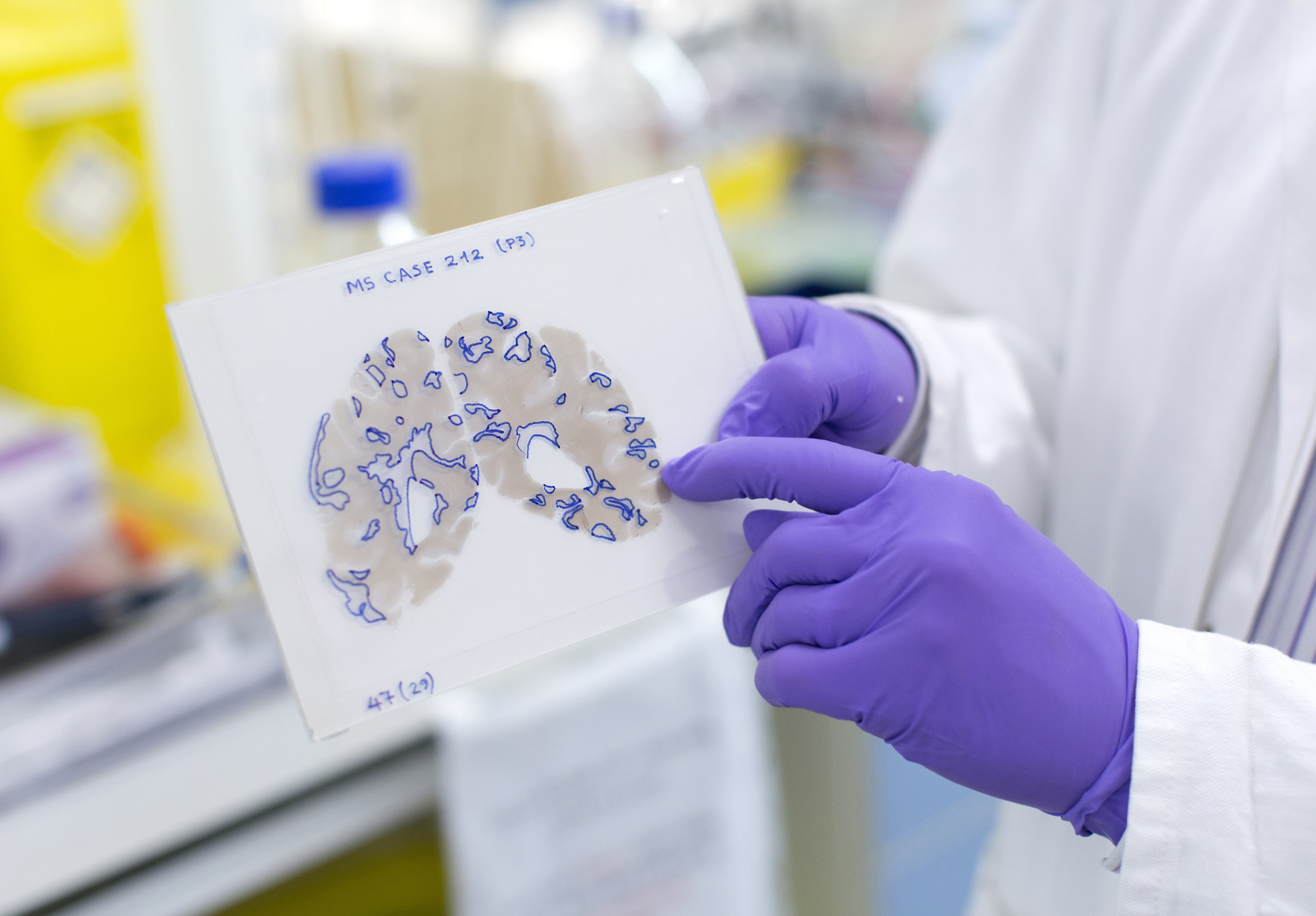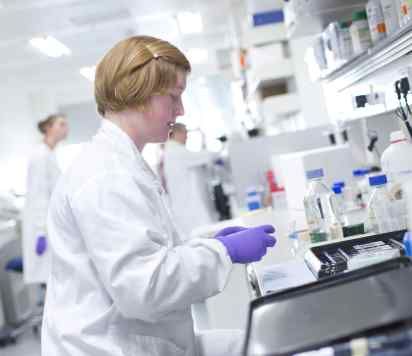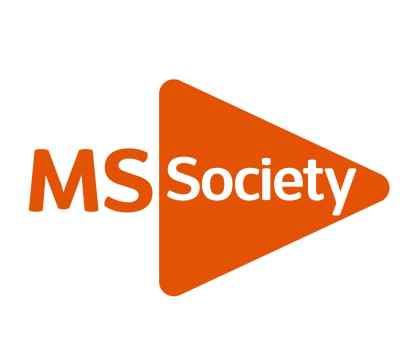
How to request tissue
The aim of the Tissue Bank is to ensure that scientists have access to the material required for research into multiple sclerosis, Parkinson's disease and related conditions. If you are currently engaged in such research and wish to request tissue, please download and complete the appropriate request pack (links below). If you have any questions or require clarification of any of the terms, please contact us.
- MS request pack (academic institutions)
- PD request pack (academic institutions)
- Commercial entities, for your request pack please contact the Tissue Bank manager
Completed request forms should be emailed to the tissue bank manager, Dr George Gverich (d.gveric@imperial.ac.uk). If you are based outside of the UK, please include a proof of funding and a proof of ethical approval for your study. You will also need to send us a fully signed material transfer agreement (MTA) as that is a precondition for supplying tissue samples and data. Please note that MTAs need to be signed by the principal investigator as well as an official representative of your institution, usually someone responsible for signing contracts and MTAs.
The MS and Parkinson’s Tissue Bank at Imperial College London has been approved as a Research Tissue Bank by the Wales Research Ethics Committee (Ref. No. 18/WA/0238). As a part of this ethical approval, the Tissue Bank sought generic ethical approval on behalf of researchers using tissue or data supplied by the bank. Under conditions agreed with the REC, the Tissue Bank can supply tissue or data to researchers in the UK without the requirement for researchers to apply individually to the REC for approval. The conditions agreed with the REC are attached are included in the request pack.
You can find the majority of the answers to your questions in our Information for Tissue Users brochure (available from September 2021). You are also welcomed to contact Dr Gverich to discuss your tissue requirements and any other issues relating to tissue banking. If you wish to browse through our collections please use the MRC Brain Bank Network database.
Peer Review Panel
All applications will be treated in confidence and are reviewed by the Tissue Bank's Peer Review Panel. The Peer Review Panel was set up by the Multiple Sclerosis Society and Parkinson’s UK to provide independent expert advice to the Tissue Bank and the charities. The Panel includes experts in human tissue use, neuropathologists, lay people affected by MS and Parkinson's, and representatives from the funding charities. The Panel acts as an ethics and review committee for all tissue requests submitted to the Tissue Bank. The present membership of the Panel is shown below:
- Dr Chris Morris (Newcastle) – Chair of the Peer Review Panel
- Dr Emma Gray – Head of Biomedical Research, MS Society
- Prof. David Dexter – Deputy Head of Research, Parkinson’s UK
- TBA – Multiple Sclerosis Expert
- TBA - Multiple Sclerosis Expert
- Dr Christos Proukakis (Royal Free, London) – Parkinson’s Disease Expert
- Dr Gavin Hudson (Newcastle) – Parkinson’s Disease Expert
- Mrs Diane Reymond - Layperson appointed by the MS Society
- Mrs Alex Wilson - Layperson appointed by the MS Society
- Mrs Meg Kierek-Bell - Layperson appointed by Parkinson’s UK
- Mrs Karen Shepherd - Layperson appointed by Parkinson’s UK
The Panel receives requests on the first Monday of every month and returns their reviews within three weeks of receipt. If your request is approved, you will receive tissue samples selected according to your specifications. We will also send you clinical summaries, neuropathology reports and details such as age, sex and PM delay. In accordance with the data protection act, all case data are anonymised. Additional data can be provided on request.
Cost recovery from tissue request provision
In line with a sustainable future for brain banking, The Medical Research Council (MRC) and associated charities have introduced a cost recovery scheme for the provision of tissue. For each tissue request for which the Tissue Bank provides tissue, a service fee will be charged to reflect a proportion of the costs associated with providing the tissue (tissue retrieval and diagnosis, tissue sampling and storage, preparation of samples for dispatch to research groups and consumables).
All new UK grant applications awarded from the 1st of January 2017 onwards need to include the cost of sourcing tissue from the Tissue Bank, as all new applications to MS&PTB will be subject to the agreed price structure after this date.
The tariff model proposed by the Tissue Bank is based on the MRC's Neurosciences and Mental Health Board approved costing model. The tariff is modified to reflect the operational needs and the tissue collection structure of the Tissue Bank. Costing tool is included in the request pack.
The following services are included in the service charge:
- Ethical approval for the use of post-mortem human tissue samples in research, except for projects conducted in host institutions abroad
- Advice on cohort construction and cases best suited for research projects, as well as the availability of tissue
- Retrieval and despatch of tissue samples from the archive of standard tissue preparations, including frozen tissue blocks; preparation of microscope slides from formalin–fixed, paraffin-embedded or frozen blocks; aliquoting of fluid samples; dissection of frozen or formalin-fixed regions of interest from existing archival tissue; preparation of tissue homogenates; DNA samples
- Provision of a limited set data accompanying the samples, including clinical summary, demographic data and pathological findings
- Temporary release of uncut brain or spinal cord for post-mortem MRI scanning.
- Release of whole uncut brain for research or education on MS and PD
Where the retrieval of new samples (e.g., fixed tissue or frozen tissue blocks) from archival tissue or cohort selection cannot be performed by Brain Bank staff alone but necessitates assistance from a Neuropathologist, a one-off fee will be added to the service charge.
Tariffs for the exceptionally complex or large requests are subject to negotiations and approval by the Peer Review Panel.
All standard materials, including histological slides, slide boxes, bags and tubes will be supplied by the Tissue Bank and included in the current tariffs. All other materials, such as slides/tubes with special coating or large size slides and specialist chemicals, will be supplied by the Requestors.
Materials included in the service charge:
- Superfrost slides (VWR 631-0108)
- Slide boxes 50- and 100-slide capacity (VWR 612-2708 and 631-1504)
- Small and large sample bags
- Cryotubes and 1.5ml tubes (VWR 479-6847 and Appleton Woods KC124)
- Bijou bottles and 15ml centrifuge tubes (VWR 215-0328 and 525-0400)
- 60ml Sterilin pots and white specimen buckets (VWR 215-0320 and 216-4529)
- Small and large embedding cassettes with lids (VWR 720-0831 and 720-1627)
- 10% Formalin fixative (Sigma F5554-19L)
- Phosphate buffered saline (VWR 437117K)
All requests are subject to the administrative fee to cover the costs of logging in and reviewing the request, case retrieval and liaising with the researcher. The Tissue Bank or its host institution Imperial College will invoice the Requestor according to the agreed schedule. The Requestor will agree to pay the invoice within thirty (30) days of the invoice date. The tissue will be supplied after the invoice has been paid or on presentation of a purchase order.
All requestors must bear the cost of packaging the samples and any delivery charge incurred for the transportation of the samples to the destination research facility. Delivery charges levied by the courier will not be included in the invoice and need to be settled separately by the Requestors themselves. Packaging will be provided by the Tissue Bank for all ambient temperature shipments and included in the invoice sent to Requestors. For all dry ice shipments, requestors will have a choice of providing the appropriate size container with dry ice or purchasing one from the Tissue Bank. For the range of available containers please see the Intelsius website. Tissue Bank's medical courier Citysprint can provide assistance with dry ice shipments and packaging. Please request a quote from the Tissue Bank manager.
Tissue preservation
We use the following preservation methods for our samples:
- Snap-frozen tissue
Alternate coronal slices of the cerebrum were blocked and individual blocks then frozen by immersing in isopentane, pre-cooled on a bed of dry ice. Frozen tissue blocks were stored at -75oC. - Fixed-frozen tissue
Alternate coronal slices of the cerebrum were placed in 10% buffered formalin fixative for 21 days and then blocked. Individual blocks were cryoprotected in 30% sucrose for one week at 4oC and then frozen by immersing in isopentane pre-cooled on a bed of dry ice. Frozen tissue blocks were stored at –75oC. - Formalin-fixed and paraffin-embedded tissue (FFPE)
Cerebral hemispheres were fixed 10% buffered formalin for fixative for 21 days, coronally sliced and blocked. Blocks were processed for 24 hours and embedded in paraffin wax.
Untreated, dissected tissue samples for tissue culture, or samples preserved using unconventional techniques may also be made available by prior arrangement.
Tissue collections and access to data and images
The following post-mortem tissue samples are available to researchers:
- Snap-frozen brain and spinal cord tissue samples (blocks or sections)
- Fixed-frozen cryoprotected brain and spinal cord tissue samples (blocks or sections)
- Formalin-fixed and paraffin-embedded tissue samples (whole fixed brain and spinal cord, whole hemisphere, whole slices, large, medium and standard histology blocks, section on slides)
- Snap-frozen and FFPE samples of pituitary and pineal glands
- Snap-frozen and FFPE samples of olfactory bulbs and tracts
- Snap-frozen and FFPE samples of muscle (limited number of cases)
- Snap-frozen and FFPE samples of colon and intestine (limited number of cases)
- Frozen cerebrospinal fluid samples
The tissue bank can supply tissue from the following conditions:
- Multiple sclerosis (primary progressive, secondary progressive)
- Parkinson's disease (idiopathic and vascular forms)
- Progressive Supranuclear Palsy
- Multiple Systems Atrophy
- Dementia with Lewy Bodies
- Control cases
We also have a number of Parkinson's cases with confirmed genetic mutation as well as a small number of cases with other neurological conditions. Please check the MRC Brain Bank Network Database for more details or email Tissue Bank manager.
The following sample types are available from the collection:
- Standard tissue section – section dimensions 2x2 cm and up to 10μm thickness
- Large tissue section – section dimensions between 2x2 cm and 6x4 cm and up to 10μm thickness
- Macro section – section encompassing one or both hemispheres (brain only) and up to 10μm thickness
- Standard tissue block – unfixed, frozen, formalin-fixed or paraffin embedded block, dimensions up to 2x2x1 cm
- Slice – whole brain slice of any dimensions, fresh or formalin-fixed
- Clarified tissue sample – samples created using the FASTClear® protocol (2x2x1cm or smaller)
Frozen and FFPE sections with section thickness over 10μm are available on request.
All cases are accompanied by a set of images, clinical summary and a full neuropathology report. A clinicopathological report is provided with samples whilst images are provided upon request.
Send a report or publication
Researchers are asked to provide a short, written summary of the work performed on material supplied by the Tissue Bank one year after receipt of the samples and on completion of the project. In addition, and upon request by the funding charities or Imperial College London, researchers may be asked to supply information on the use and fate of the material received from the Tissue Bank, including the availability of any unused material.
Please use the link below to download the form to send us your report and information on any publications resulting from the use of tissue.
General enquiries
MS and Parkinson's Tissue Bank
Division of Brain Sciences
Imperial College London
Hammersmith Hospital Campus
Du Cane Road
London W12 0NN, UK
+44 (0) 20 7594 9734 (MS)
+44 (0) 20 7594 9732 (Parkinson's)
brainbank@imperial.ac.uk
Emergency contacts
From 1 December 2017 our emergency number is changing to
07566 950 965 (MS and Parkinson's)


